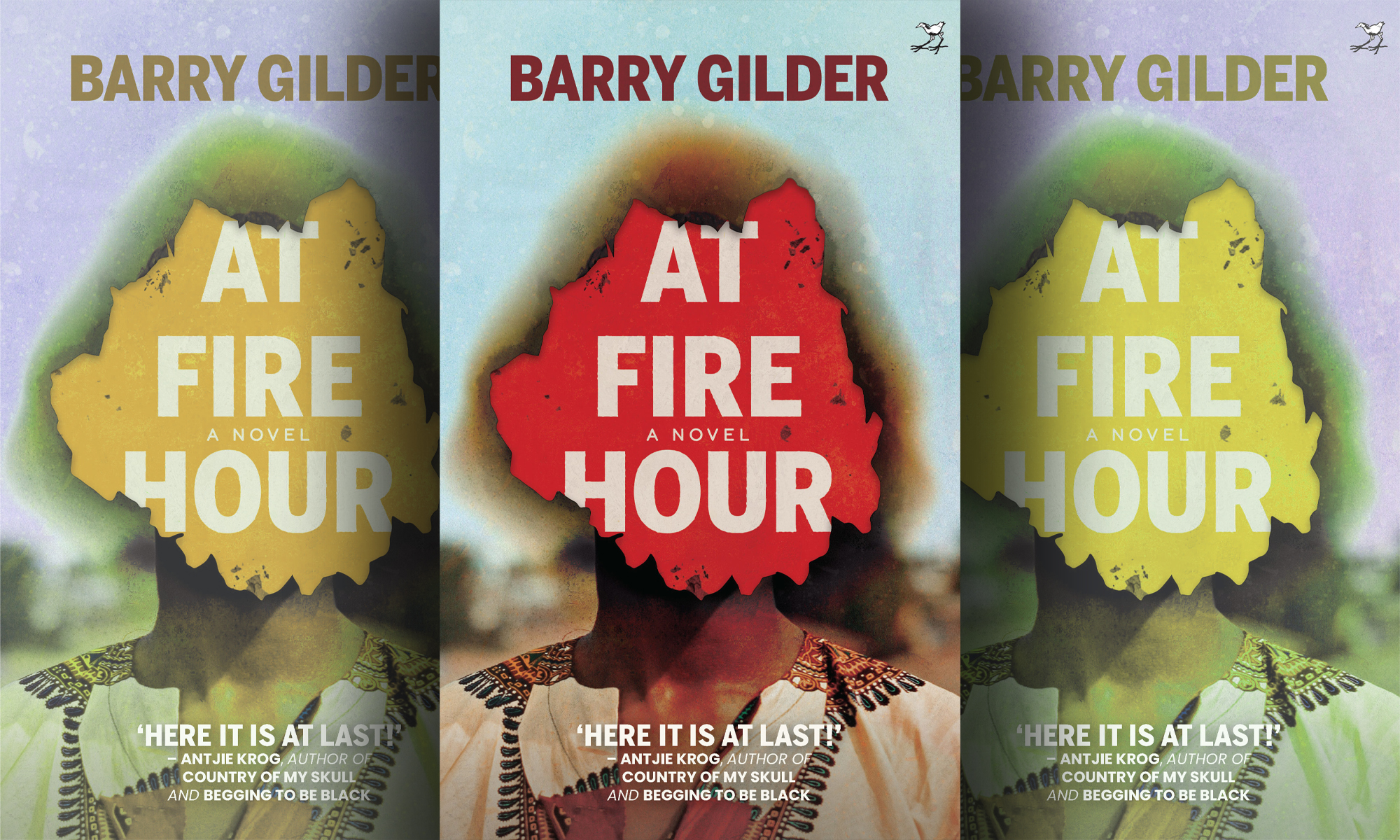Barry Gilder’s novel, At the Fire Hour, is a deeply layered reflection on loyalty, memory and what it costs to live a life split between political commitment and artistic longing.
In the book, we meet Bheki Makhathini, a South African writer and exile suspected of betraying the ANC. Suspicion clings to him. Was he a sellout? A spy?
This question is at the novel’s quietly devastating core. Gilder uses this tension not only to explore personal betrayal but to reflect on the paranoia that haunted the liberation movement’s underground networks.
Like Gilder, Bheki is a young creative who leaves South Africa in 1976 and goes into exile. He completes a creative writing master’s degree in the UK, undergoes military training in Angola and the Soviet Union and returns home after the unbanning of the ANC.
His life and the novel become a meditation on the high stakes of political belonging. Fiction becomes a tool to wrestle with what it means to be doubted by your own comrades, and what is lost in that rupture.
But this is not simply a political thriller. It is also a love story, a story of creative loss and an intimate sketch of exile.
At the Fire Hour spans continents, mirroring the movement of activists scattered by apartheid. These spaces are rendered not as exotic backdrops, but as textured zones of struggle, reflection and belonging. Gilder, who lived through many of these dislocations, lends authenticity to these passages. Through Bheki’s voice, he evokes the haunting uncertainty of displacement and the fragility of the revolutionary self.
There’s an important strand in the book on surveillance and the psychological toll of being under suspicion.
Read more: How a simple park run became a worldwide phenomenon
The novel’s emotional gravity lies not in action but in atmosphere: the loneliness of exile, the fragility of trust and the slow erosion of the self under constant doubt. Gilder does not absolve his characters easily. Instead, he allows the complexity of revolutionary life to settle in quietly, asking the reader to sit with uncertainty.
One of the most arresting sequences in the novel explores the brutal techniques of interrogation: Bheki is forced to stand on a brick for five hours, deprived of sleep for two days and nights, subjected to electric shocks on his testicles. These methods are not described for sensational effect, but as part of a system designed to fracture belief, to extract not only information, but ideological collapse.
Gilder documents how the body is targeted in the hope that the will might break, and how survival becomes a kind of guilt. In the aftermath of such violence, the doubts of comrades cut deeper. Was Bheki released because he cooperated? Or because they could not break him?
The anguish of this experience crystallises in a poem written by Bheki, inserted into the novel:
words do not slice skin
shred flesh
shatter bone
dethrone dictators.
This tension is echoed in the novel’s interplay between art and politics. Bheki, like Gilder, is torn between creative expression and the imperatives of the struggle.
“The more I got involved in the struggle, the fewer songs I wrote,” Gilder told me. “Things got really hectic… writing reports to Lusaka, moving from safe house to safe house. Wally Serote was writing a novel during that time. I wasn’t. I haven’t written a song since the 1980s.”
Creativity became a casualty of the revolution. The silence was not chosen, but enforced by necessity.
Yet in fiction, he rediscovers voice.
The novel, which began as part of Gilder’s PhD submission, is woven with poems and short stories written by Bheki, forming a narrative within a narrative.
“I kind of really enjoyed getting into his creative head,” Gilder said. “It helps say things more concisely than one can in the narrative part of the book.” These insertions do more than embellish the story; they deepen it, giving texture to the private interiority that historical accounts so often flatten.
At the Fire Hour is also a commentary on the cultural politics of the ANC in exile. Gilder vividly reconstructs events like the Culture and Resistance Conference in Gaborone and Culture in Another South Africa in Amsterdam. These were not peripheral events; they were sites where politics and creativity met, where resistance was choreographed through poems, music and song.
Gilder was present at these gatherings. His fictionalisation of them pulses with insight and detail that only a participant could provide.
What makes this novel essential is not simply its storytelling, but its function as a historical intervention.
In a country still wrestling with the afterlives of struggle, Gilder insists on fiction’s power to hold emotional truths that the archive cannot.
“Historians tell us what happened,” he said. “Novelists tell us what it felt like.”
This is not nostalgia. It is reckoning. The novel is a form of political memory work – an attempt to break the silence around suspicion, doubt and betrayal that was never truly resolved.
By the end, the novel ceases to be about one man’s guilt or innocence. It becomes something far more collective – a mosaic of those who made the movement, lived through exile and continue to carry its shadows.
Gilder reminds us that the story of liberation is not just about triumph. It’s about what it costs to keep going.
At the Fire Hour stands as both tribute and testimony, a quiet but insistent record of what it meant to survive the storm and to still want to sing. DM
At the Fire Hour is available at Exclusive Books.




